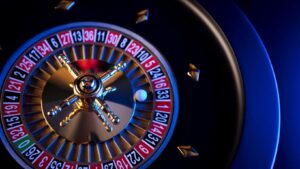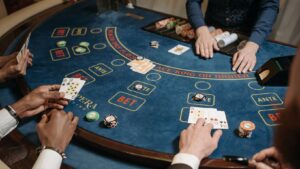Table of Contents
ToggleIn a world where ancient wisdom meets modern curiosity, advanced pagan books offer a treasure trove of knowledge waiting to be unearthed. These literary gems dive deep into the rich tapestry of pagan traditions, rituals, and philosophies, making them essential for anyone keen on expanding their spiritual horizons. Whether you’re a seasoned practitioner or a curious newcomer, these books promise to spark your imagination and maybe even your cauldron.
Imagine flipping through pages filled with spells, lore, and insights that could make even the most skeptical of scholars raise an eyebrow. From the intricacies of herbal magic to the philosophy of nature worship, these texts challenge conventional thinking while inviting readers to explore their own paths. So grab your favorite mug of herbal tea and prepare to embark on a journey that might just lead to your next mystical adventure.
Overview of Advanced Pagan Books
Advanced pagan books provide in-depth insights into ancient practices and modern interpretations. These texts cover a diverse range of topics, including rituals, philosophy, and spells. Readers find detailed explorations of traditional beliefs alongside innovative approaches to spirituality.
Many advanced pagan books feature contributions from knowledgeable practitioners and scholars. They often combine historical context with practical applications, making them ideal for serious study. Ritual frameworks found within these works serve as guides for personal practice, encouraging readers to engage deeply with their spirituality.
Advanced techniques in herbal magic play a prominent role in several texts. These books often detail the properties of various plants, offering guidance on how to harness their energies for ritual and healing purposes. Authors emphasize the importance of nature worship, highlighting ways to connect with the earth’s cycles and energies.
Some popular titles consist of comprehensive encyclopedias, philosophical treatises, and hands-on guides. These resources cater to different learning styles, ensuring that both visual and experiential learners benefit. Engaging with advanced pagan writings enhances understanding of complex topics, fostering a more profound connection to one’s practice.
Moreover, a growing number of online platforms now complement traditional literature, providing access to forums and digital libraries. This development allows practitioners to share insights and experiences, creating a more dynamic learning environment. Advanced pagan books stimulate critical thinking and growth, inspiring readers to challenge established norms and explore personal beliefs.
Key Themes in Advanced Pagan Literature

Advanced pagan literature delves into various core themes, enriching both spiritual practice and understanding of traditions.
Spirituality and Ritual Practice
Ritual practice remains central to advanced pagan literature. This literature often details specific rituals that connect practitioners to their spiritual roots. Such rituals emphasize intention, allowing individuals to focus energy towards specific outcomes. Various texts provide methods for incorporating elements like seasonality and lunar cycles, emphasizing their importance in practice. Rituals also serve as a gateway for personal empowerment, encouraging introspection and community connection. Advanced works highlight the transformative power of ceremonies, showcasing how these practices foster deeper spiritual awareness.
Mythology and Symbolism
Mythology and symbolism play crucial roles in advanced pagan literature. This literature explores various myths, uncovering layers of meaning tied to specific deities and natural forces. Each symbol holds significance, often reflecting larger philosophical concepts. Texts provide insights on interpreting these symbols within the context of personal beliefs and cultural narratives. Engaging with mythology encourages practitioners to draw connections between ancient tales and modern experiences. Advanced pagan books often include analyses of how these stories shape ethical perspectives and community practices, enhancing the overall understanding of pagan spirituality.
Notable Advanced Pagan Authors
Numerous authors have significantly impacted advanced pagan literature. Their works explore various aspects of pagan practices, philosophy, and rituals.
Author One’s Contributions
Starhawk stands out as a prominent figure in pagan literature. She emphasizes the importance of eco-feminism and emphasizes the integration of spirituality with nature. Her seminal work, “The Spiral Dance,” provides insights into feminist spirituality and the reclaiming of ancient practices. Additionally, Starhawk’s teachings focus on the interconnectedness of all beings, encouraging practitioners to engage with nature in their spiritual journeys. Through her workshops and writings, she inspires individuals to incorporate ritual and magic into everyday life, effectively bridging the gap between ancient wisdom and contemporary practices.
Author Two’s Contributions
Diana Paxson’s influence in advanced pagan literature is noteworthy. Her writings often explore Germanic and Norse traditions, providing readers with a deeper understanding of these ancient paths. In her book, “Trance-Portation,” she offers methods for achieving altered states of consciousness, facilitating spiritual growth. Furthermore, Paxson’s focus on mythology and narrative enhances readers’ connections to their pagan roots. Engaging with her work fosters a sense of community among practitioners, as she proposes ways to weave personal experiences with ancestral traditions. Her contributions enrich the landscape of advanced pagan studies, making her a vital voice in the field.
Recommended Advanced Pagan Books
Several titles stand out in the realm of advanced pagan literature.
“The Spiral Dance” by Starhawk provides essential perspectives on eco-feminism, combining spirituality with nature. This work is foundational for those seeking to integrate ritual and magic into everyday life.
“Trance-Portation” by Diana Paxson explores Germanic and Norse traditions. In this text, readers find methods for entering altered states of consciousness, enhancing their spiritual experiences.
“The Encyclopedia of Witchcraft and Demonology” by Ralph L. Stapley serves as a comprehensive resource on various practices and beliefs. This volume covers extensive historical and cultural context, allowing practitioners to deepen their understanding of witchcraft theories.
“Pagan Spirit: The Influence of Nature on Pagan Practice” by Yvonne Aburrow emphasizes the relationship between paganism and the natural world. This book encourages readers to explore earth’s cycles, fostering a stronger connection to their surroundings.
“The Witches’ Book of the Dead” by Christian Day presents insights into necromancy and communication with the afterlife. This text offers practical applications, pushing boundaries in the exploration of life after death.
“The Complete Book of Incense, Oils and Brews” by Scott Cunningham delivers detailed recipes for crafting magical oils and incense. Readers benefit from extensive knowledge about the properties of various ingredients and how to use them in rituals.
Each of these titles enriches the study of advanced pagan practices, promoting a deeper engagement with spirituality and tradition. They invite readers to challenge their understanding while connecting with ancient wisdom and modern interpretations.
Advanced pagan books serve as vital resources for those seeking to deepen their understanding of spirituality and tradition. They bridge the gap between ancient wisdom and contemporary practice, inviting readers to engage with complex themes and rituals. By exploring these texts, practitioners can cultivate a richer connection to their beliefs and challenge conventional perspectives.
The insights gained from these works can inspire personal growth and encourage a more profound relationship with nature and the cycles of life. As the community continues to evolve, these books will remain essential for both seasoned practitioners and newcomers alike, fostering a vibrant dialogue around pagan practices and philosophies.




